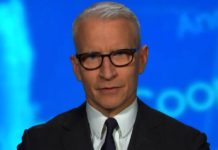MOSCOW — Nobody knows what’s going on inside the Kremlin right now. And perhaps that’s precisely the point.
President Vladimir V. Putin announced constitutional changes last week that could create new avenues for him to rule Russia for the rest of his life.
But will they? How? And will he?
Mr. Putin’s new prime minister announced his roster of ministers on Tuesday, with the most prominent officials keeping their posts. Yet as more details of what appears to be Russia’s biggest governmental overhaul in a decade trickle out, the true nature of Mr. Putin’s long-term plan — and whether he even has one — is shrouded in mystery.
Ever since his opening salvo at the end of his annual state-of-the-nation speech last Wednesday, nearly every day has brought news of high-level resignations, unexpected appointments and cryptic new legislation. Decoding these clues — and arguing over whether one should even try — has thrown the international cottage industry of Kremlin experts into a contradictory cacophony of prediction and interpretation.
Mr. Putin’s proposals, sure to be adopted by his rubber-stamp Parliament, mean “potentially very little change at all,” Sam Greene, the director of the Russia Institute at King’s College in London, said in an 11-part thread on Twitter. “Or potentially quite a lot of change.”
Marat Guelman, a former Kremlin media strategist, wrote on Facebook, “I’m going to make a risky forecast, but I’m almost convinced it’s true.” Mr. Putin, he said, is surely on the verge of resigning. “Soon, we will lose him.”
“Alas!” Alexei Venediktov, the editor of the Moscow radio station Ekho Moskvy, posted on the messaging app Telegram, responding to the latest news on Monday by quoting a 19th-century poet. “Not even a quarter-hour passed, and I already sensed that it was high time to drink vodka.”
The first response by many analysts to Mr. Putin’s speech last week laying out a constitutional overhaul was that it was meant to provide the groundwork for the president to maintain his grip on power even after his fourth term ends in 2024.
A strengthened Parliament might allow Mr. Putin to become a highly influential prime minister, the thinking went. Or new powers set to be granted to an obscure body called the State Council could give Mr. Putin, who is now 67, a venue to fill a father-of-the-nation role in semi-retirement.
But events since then have been so fast-paced and chaotic by the standards of Mr. Putin’s deliberate, no-drama style of domestic leadership that many observers now wonder whether something else might be afoot.
Kremlin control of Russian television has kept a full-fledged debate off the country’s airwaves. But in Twitter threads, lengthy Facebook posts and screeds on Telegram, political commentators have put forward so many different theories that they paint a picture of a nation in collective befuddlement.
Given Mr. Putin’s penchant for trying to keep his adversaries off balance, the befuddlement might be part of the Kremlin’s goal.
“The president put up a smokescreen behind which he is determined to reform the political system based on a new ideological project,” political scientist Vladimir Pastukhov wrote in the Novaya Gazeta newspaper. “It is impossible to make out what is actually going on.”
The fine art of making educated guesses as to what Russia’s leadership is up to — also known as Kremlinology — dates back to Soviet times. But few moments in recent history have left the chattering classes as off-kilter as this one.
In addition to proposing sweeping constitutional changes, Mr. Putin last week accepted the resignation of his entire government and replaced the longtime prime minister, Dmitri A. Medvedev, with a man few Russians had ever heard of — the tax-office chief, Mikhail V. Mishustin.
One school of thought held that Mr. Medvedev’s career was all but over and that Mr. Putin had tapped Mr. Mishustin as a potential presidential heir. Another was that Mr. Mishustin was in fact a mere technocrat, while Mr. Medvedev, in his new role in the newly created position of vice chairman of Russia’s Security Council, was parked in a vice-president-style function that made him the heir apparent.
The bigger question was what would happen to Mr. Putin himself. New clues came on Monday with the publication of a 29-page bill to enact the constitutional changes that he outlined last week.
Ekaterina Schulmann, a political scientist, wrote that the first thing she noticed about the bill was the commas: So many of them seemed to be missing that it appeared the bill had been drafted and published in haste.
The fine print of the legislation showed that the prime minister’s powers would not be expanded as much as first advertised, while members of the State Council would still appear to serve at the pleasure of the president.
So maybe Mr. Putin’s plan is to stay president, after all?
Theories that seemed far-fetched on the surface soon gained currency. While Russia’s Constitution currently prohibits the president from serving more than two “consecutive” terms, Mr. Putin’s proposed changes included a tweak to ban a president from serving more than two terms, period.
Perhaps this one-word change was the real aim, some postulated: Down the road, the Kremlin could argue that the amendment had reset the term-limit counter, allowing Mr. Putin to stay in office for two additional six-year terms.
Others claimed, citing no evidence, that the remarkable haste with which the Kremlin was pushing through the constitutional changes and remaking the government was evidence that Mr. Putin might want to call it quits — or was trying to head off a coup.
The drip-drip of revelations continued with what seemed to be a wide-ranging reorganization of senior officials. Yuri Y. Chaika, the powerful prosecutor general, abruptly left his post on Monday, only to resurface as Mr. Putin’s new representative to Russia’s northern Caucasus region on Tuesday. A demotion? So it seemed, but one couldn’t be so sure.
By Tuesday afternoon, the guessing game over who would form the rest of the new cabinet was in full swing. Margarita Simonyan, the editor of the pro-Kremlin television network RT, posted a plea to Telegram asking journalists to stop calling her to confirm rumors that she would be taking this or that senior post.
“I’m not going anywhere and won’t be going anywhere,” she wrote.
The new cabinet, announced on Tuesday evening, kept the most prominent members of the old one — Foreign Minister Sergey V. Lavrov and Defense Minister Sergei K. Shoigu. The roster of ministries that received new heads — including health care, sports, education and economy — suggested that Mr. Putin wanted to show he was taking Russians’ domestic problems seriously while not planning any shifts in foreign policy.
“The most important goal is to raise the well-being of our people, to strengthen our statehood and the international standing of our country,” he told the new cabinet.
Konstantin Sonin, a Russian economist at the University of Chicago, took his colleagues to task for tying Mr. Putin’s changes to any transition plan for 2024. Given the Kremlin’s track record of adjusting in real time to major unforeseen events, it was hard to see Mr. Putin’s tacticians gaming out such a long-term plan, he wrote. Rather, he said, the developments could be the result of a power struggle between conservative and progressive factions in Mr. Putin’s orbit.
“I don’t know how this story ends,” Mr. Sonin wrote on Facebook.
The debate quickly escalated to whether there should be a debate at all. Nothing could change the most important fact of political life in Russia, the popular blogger Aleksandr Gorbunov wrote: Mr. Putin’s system is a “one-man regime.”
“All this reshuffling is only necessary to make sure the framework doesn’t change, and rather is cemented even further,” Mr. Gorbunov wrote on Telegram.
A journalist, Yury Saprykin, offered a similar sentiment on Facebook, but in verse:
We’ll be debating over how he won’t leave,
We’ll be guessing, will he leave or won’t he.
And then — lo! — he won’t be leaving.
That is, before the elections he won’t leave,
And after that, he definitely won’t leave.
Ivan Nechepurenko, Sophia Kishkovsky and Oleg Matsnev contributed research.
Source : Nytimes













